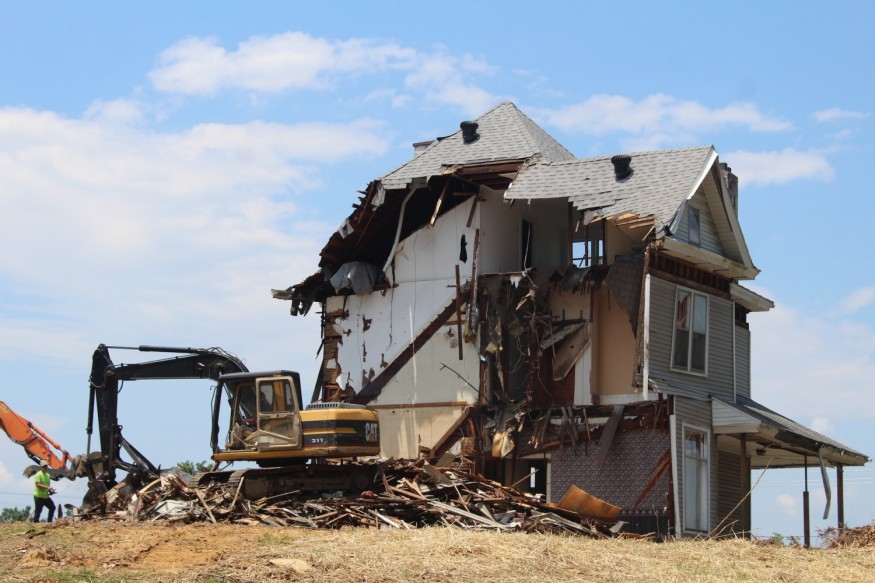
A home demolition may seem like a straightforward process. If you have chosen to leave your house and have it demolished, the demolition procedure does not begin immediately. You will need to complete a few different preparations before you can even begin. If you've never done it before, taking down a house is a large job that necessitates your attention to critical elements before you begin.
According to Van's Hauling, a well-known demolition company, the following are essential guidelines to follow throughout the demolition process:
Know Your Budget
Evaluate the cost of materials, labor, permits, and other project costs. Depending on the size and complexity of the project, these costs might quickly add up.
Materials are the most expensive in demolition operations. If you're doing it yourself, be sure you know how much material you'll need for each job. Timber, nails, screws, and tools for cutting concrete or brick walls are all provided.
When estimating project costs, remember to add labor. Hiring a professional contractor is usually more expensive than doing it yourself, but their knowledge and experience may save you time and money by avoiding costly mistakes or delays caused by inexperience or a lack of equipment.
Budgeting for permits is required when planning a demolition project. Check with local authorities for the permit required before dismantling walls or structures inside city limits.
Obtain Your Permits
The requirements for acquiring a demolition permit may vary greatly from one place to the next, but you will almost certainly need one to complete any demolition project. Be prepared for a substantial quantity of paperwork, inspections, and fees, all of which you should include in your budget. It is in everyone's best interest to follow the rules when it comes to the legal ramifications of demolishing a building. The initial step should be to contact the local authority in your region and get guidance on the process.
Services Must Be Disconnected
It is critical to cut off the utilities before commencing the demolition of a structure since failing to do so might result in catastrophic or even deadly casualties. This covers the supply of natural gas, water, and electricity. Notify each of these companies ahead of time so that they may take the required procedures to guarantee that everything is turned off before the demolition work begins. When you begin the process of dismantling a building, be sure that all essential safety procedures, such as shutting off the natural gas, have been done.
Inspect for Asbestos
Another crucial step before demolishing a building is to consider this at an early stage in the design process. This is especially significant if the building in question is more than 20 years old. If you have any reason to believe that asbestos is present, you should contact a professional inspection team. Do not attempt to inspect or remove asbestos on your own since the airborne particles are very dangerous to both you and your neighbors.
Notify Your Neighbors
Talk to your neighbors before you start demolition so they know when it will happen and can take precautions to keep the mess to a minimum in their homes. The demolition process may be dusty and dirty; thus, they must have strategies for managing the dust that is created so that your neighbors are not affected.
It will also allow your neighbors to plan for challenges such as noise pollution and traffic congestion.
Create a Backup Plan
It is conceivable that your demolition project may not proceed as planned. You may encounter issues or pay extra charges throughout the operation. As a result, you must have a backup plan in place before beginning the demolition job. If you have a contingency plan in place, you will be ready to handle or address any problems that arise, regardless of whether they are due to bad weather or a lack of resources. If you do not do this, you risk incurring additional costs and causing the project to go behind schedule.
House demolition necessitates an effort that is both difficult and costly. Before you begin, be sure you gather all relevant information and thoroughly assess each step of the process.
Dispose of Materials
Get the advice of a qualified specialist on the most secure method of removing hazardous building materials such as asbestos and flammable chemicals. Some items and materials may be recycled or reused. Speak to the members of your demolition team to gather their thoughts on the building and the surrounding region.
Final Words
Homeowners may find demolition projects daunting, but this does not have to be the case if proper preparation and planning are carried out. When planning home demolition projects, it is possible to ensure that the work is done safely and efficiently by paying close attention to problems such as safety, cost estimation, trash management, and environmental impact. If you know what elements to consider while planning a home demolition project, you will be well on your way to completing your task effectively.



